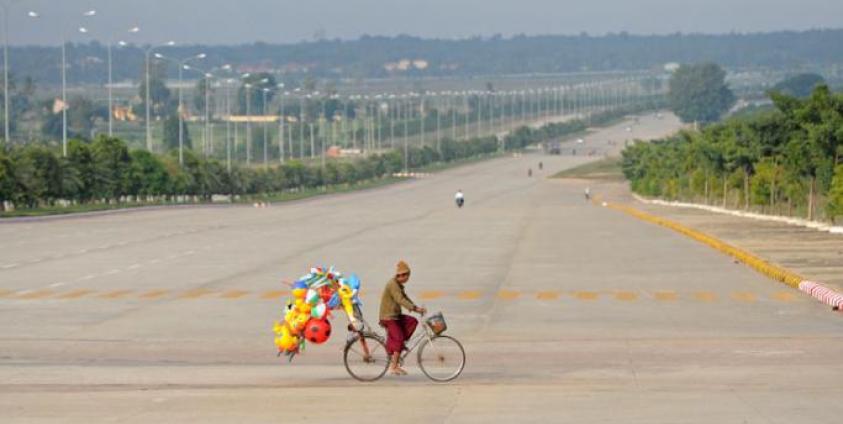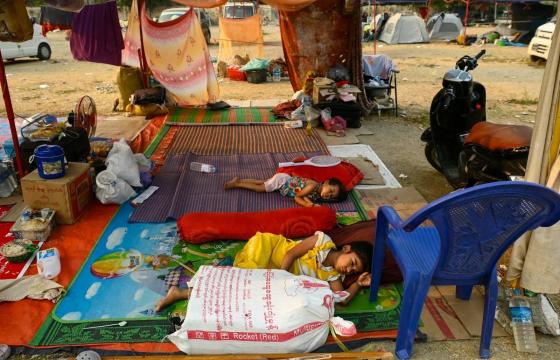Upendranadh Choragudi — As a global multilateral development finance institution, the World Bank (WB) Group has a significant sphere of influence over the growth and development trajectory of Myanmar. As an agency dedicated to addressing poverty, facilitate growth and shared prosperity, it provides grants, concessional loans, commercial loans (through its private sector arm IFC) and also stands as a guarantee. While the Myanmar Government is the primary partner and client (most loans/grant projects are implemented) for the Bank but many of its operations impinge on the communities especially those marginalized. Its focus on the private sector also reflects the increasing role of the private sector in development. It is for these reasons that its operations – in terms of country economic analysis, strategy, policy advice, lending priorities, practices, safeguarding measures, transparency initiatives – are keenly observed and critiqued by the stakeholders.
There are global NGOs like the Bank Information Centre, local networks, IFI watch Myanmar, bringing out evidence and case studies on the working of World Bank-funded projects at the field level and implications of its policy advice to the government and advocate for changes in policies and practices. Private sector players are also important in that they provide feedback to the Bank in its policy formulation.
On its side, the Bank is also increasingly recognizing the need for consulting a wide range of stakeholders, especially CSOs and NGOs so that its policies and programmes are attuned to the needs and context of the country. It is, in fact, part of its stated policy of citizen engagement framework. The question, however, is how to walk the talk and ensure the voices of people are heard seriously and diligently during the policy formulation and to what extent they are incorporated.
The World Bank has undertaken the process of second country partnership framework (CPF), that intends to outline priority areas and focus of the Bank in the coming years (2020-24) for Myanmar. The Bank has set in motion the process through Systematic Country Diagnostic (SCD) and the process of consultation with CSOs. Since Nov 2019, it has conducted consultation meetings in various places, seeking inputs from different stakeholders. One such last consultation is expected to be held on the 17 January 2020 in Yangon.
At recent preparatory workshops of INGOs and CSOs facilitated by agencies like Bank Information Centre (Europe), INGO forum, ActionAid, IFI watch Myanmar, participants brought out significant insights on the thinking of the CSOs and on how the Bank is working in Myanmar. There are many takeaways that may have to be considered by the World Bank and even the government in order to make its processes of consultations more meaningful and substantial for the formulation of sound policies.
Many Bank watchers point out the gaps and shortcomings in the process itself and seek deeper engagement of the Bank. While acknowledging the improvements in the processes, they also identify the gaps in terms of short time span, difficulties faced in accessing full information on CPF, language barriers, missing aspects in the focus areas and alignment of Bank’s policies with that other global goals (for example, Paris Climate Action Plan) as well as that of other multilateral and donor agencies. Absence of a draft document (other than a PowerPoint presentation) was also found to be a difficulty to make a substantive contribution to the process by CSOs so far.
WB identifies through an exhaustive Systematic Country Diagnostic (SCD) three pathways and cross-cutting areas of work. They include the promotion of sound economic management through second-generation reforms (in finance, banking insurance sectors) for foreign investments and for much needed infrastructure development; inclusive institutions that can accommodate the diversity of the country and brings in social cohesion; sustainable natural resource management and addressing resilience of the economy and society from disasters. Modernization and forward-looking institutions and public policies are also highlighted as a way forward for Myanmar.
Some of the top-line concerns expressed relate to the absence of significant commitment to a climate action plan or gender action plan in the CPF. Similarly, no reference to the promotion of renewable energy sources is also an area of concern, even though the commitment to SDGs figure broadly as a preamble for the CPF.
Networks like INGO forum point out the need to address the tensions between the stated mandate of the Bank on one side and the project objectives which often takes a narrow view. This is especially so, in addressing issues of peace, decentralization which heavily hinges on trust and confidence of communities and other stakeholders like state/regional governments, non-state actors and others. Similarly, ideas around institution strengthening would have to be negotiated through a narrow band of possibilities, as it involves trust, skills and capacities, which are in shortage. Addressing issues of under-development need to be seen in co-terminus with broader issues of national reconciliation, political dimensions of the peace process and conflict resolution. From a practical and portfolio funding perspective too, lessons from the experiences like National Community Driven Development Project need to be factored in especially in light of changing contours of sub-national governments in terms of their mandates and ability to direct and manage local development. Balancing environmental concerns and development priorities is another big issue that needs to be addressed. It is in this context, aligning and prioritizing policies around sustainable energy comes to picture. Investment projects of different energy sources - in terms of coal, gas, hydropower and solar energy – require careful considerations for the environment and alignment with global pacts and national priorities need to be considered. It is important that WB accommodates its own mandate as well as the commitment of the Myanmar government in terms of promotion of renewables.
Acknowledging community voices and concerns on the environment is critical in order to build an inclusive development agenda. CSOs at a recent meeting in Mandalay have also expressed concern on investments in coal and hydropower projects that have the potential to create negative environmental impacts.
It is also important to ensure that ongoing economic reforms (and the focus of CPF on the financial sector) would balance the needs of resource mobilization for human development sectors and filling up the gaps through project funding. Progressive taxation and focus on social policy warrant attention at this juncture. Similarly, focusing on SMEs would create sustainable demand and employment. At the same time as the analysis of the WB points out, government capacities at the implementation and monitoring levels are weak and this requires significant investments in augmentation of human resources for the delivery of public services. As increasingly state/regional governments become central to balanced growth and development, policy capacities at that level also become important. Similarly, Public administration sector reforms also call for urgent attention.
One hopes that the WB CPF as a draft document which will seek government approval in the coming months will accommodate some of these concerns and guide Myanmar towards an inclusive society.








